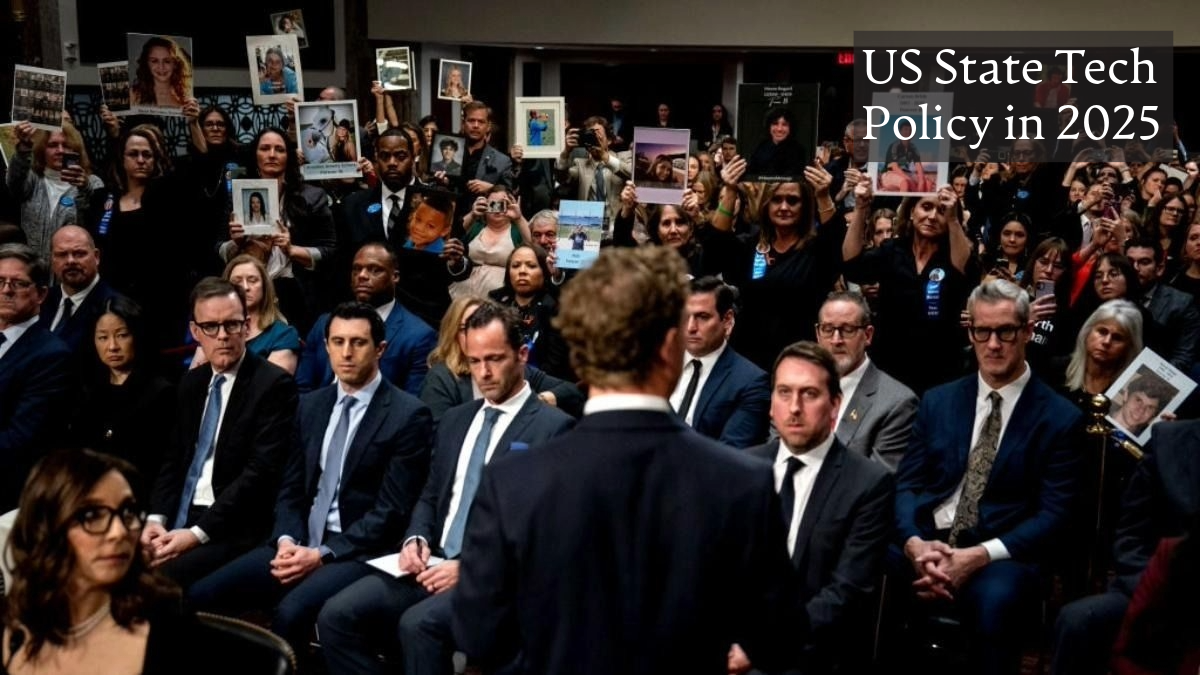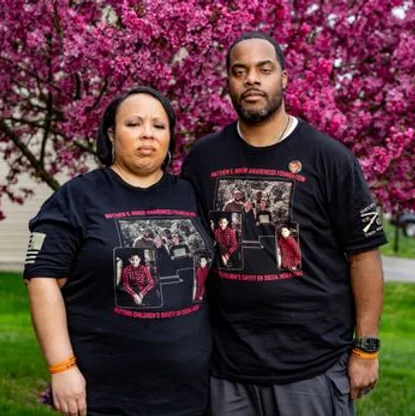Turning Grief into Action: Parents Leading the Charge for Kids’ Online Safety in 2025
Todd Minor Sr. / Jan 10, 2025
Mark Zuckerberg, CEO of Meta Platforms Inc., center right, addresses the audience, including parents of children injured or lost in events involving social media, during a Senate Judiciary Committee hearing in Washington, DC, US, on Wednesday, Jan. 31, 2024. Photographer: Kent Nishimura/Bloomberg via Getty Images.
Over the past year, my wife Mia and I have traveled between D.C. and Annapolis, advocating for laws to protect kids online in memory of our son Matthew, who we lost in 2019 to the TikTok 'Blackout' challenge.
Now, as the 118th Congress concludes with the U.S. House leaving the Kids Online Safety Act (KOSA) unpassed, despite its 91-3 approval in the U.S. Senate, our focus will remain on keeping kids alive and safe this year.
We aren’t giving up on national-level change, but as we feel the sting of KOSA’s fate after months of emotionally draining Capitol Hill advocacy, parents are finding renewed energy in state-level initiatives. We are also finding strength and hope in empowering each other through sharing success stories about policy victories many of us have achieved at the state and community level and gearing up to secure more of these wins in the year ahead.
State-led efforts are as diverse as this national community of families, including design bills modeled after our Maryland Kids Code, social media warning label bills we have united with doctors and the public health community to support, bills that target the wild west of deepfakes and AI, and legislative attempts to address disruption in schools.
As parents, we are deeply alarmed by the fast-growing new danger of companion chatbots marketed to young users, which researchers have linked to worsening mental health conditions by isolating children from family and peers.
We recently connected with Megan Garcia, a Florida mom whose 14-year-old son Sewell died after a Character.AI chatbot encouraged him to commit suicide. Their family’s tragic experience isn’t isolated.
Parents in Texas are now taking action against Charater.AI, too, as a new investigation by the British newspaper The Telegraph reveals that the company’s bots are “instructing teenage users to murder their bullies and carry out school shootings.” Expect to see legislation to tackle the threats AI chatbots pose to young kids emerge in several states over the coming months.
Another burgeoning priority for parents is social media warning labels.
Parents are advocating for social media warning labels as a public health tool. These labels have a proven track record of raising awareness about the risks of dangerous products, especially among young people. With social media linked to rising rates of depression, anxiety, and self-harm, clear information is critical to safeguard children.
Accountability for companies will also be a key component of these efforts. Some state legislators are considering penalties of $270 per child harmed, based on internal Meta emails valuing teenagers at “roughly $270 each.”
If profit is these companies’ primary focus, targeting their financial interests may be the most effective way to force change.
Meanwhile, here in Maryland, we will be monitoring closely this year to ensure Big Tech companies comply with the new Kids Code law and sharing our insights with parents and policymakers in other states. We aren’t taking our eyes off the ball for a second. This is a community of practice where we are constantly learning more about the best technical and legal strategies to keep kids safe.
Despite setbacks at the federal level, we remain committed to protecting kids online and supporting parents around the country in building and growing similar community-led efforts to address this crisis. Inspired by Matthew’s memory, we will continue working tirelessly to honor him and spare other families the grief we’ve endured.
This post is part of a series examining US state tech policy issues in the year ahead.
Authors
